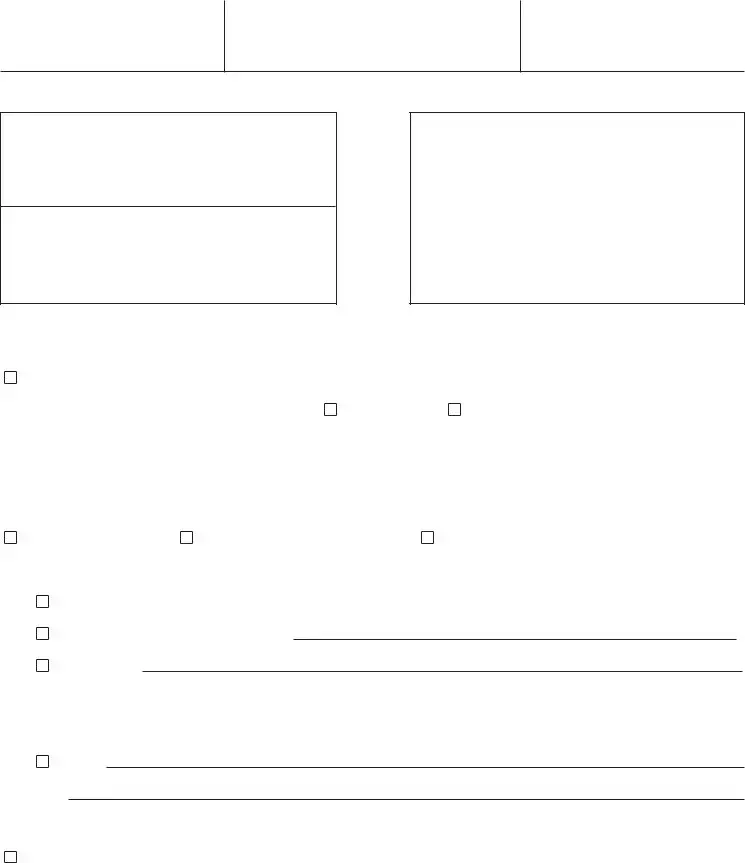Free Mc 304 Michigan Template in PDF
The MC 304 Michigan form plays a crucial role in the legal process, specifically when traditional methods of serving a defendant are not feasible. This form is used in cases where the court determines that a defendant cannot be reasonably served in the usual manner. It outlines alternative methods for serving legal documents, ensuring that defendants still receive notice of the proceedings against them. The form includes sections for identifying the court, the parties involved, and the specific methods of service approved by the court. These methods can range from mailing documents to tacking them on the defendant's door or delivering them to someone in the defendant's household. Each method requires proof of service to be filed with the court, confirming that the defendant has been informed. Additionally, the form includes space for the process server to certify their actions, ensuring transparency and accountability in the service process. Understanding the MC 304 form is essential for both plaintiffs and defendants, as it helps navigate the complexities of legal notifications and upholds the right to a fair hearing.
Form Example

|
Original - Court |
|
1st copy - Defendant |
Approved, SCAO |
2nd copy - Plaintiff |
3rd copy - Return |
STATE OF MICHIGAN JUDICIALDISTRICT JUDICIALCIRCUIT COUNTYPROBATE
ORDERREGARDING ALTERNATESERVICE
CASE NO.
Court address |
Court telephone no. |
Plaintiff name(s), address(es), and telephone no(s).
Defendant name(s), address(es), and telephone no(s).
v
Plaintiff's attorney, bar no., address, and telephone no.
THECOURTFINDS: |
|
|
|
|
|
1. Service of process upon the defendant, |
|
|
|
|
, |
cannot reasonably be made as provided in |
MCR2.105 |
MCR 2.107(B)(1)(b) |
and service of process |
||
maybemadeinamannerthatisreasonablycalculatedtogivethedefendantactualnoticeoftheproceedingsandan opportunity
to be heard. |
|
|
|
|
ITISORDERED: |
|
|
|
|
2. Service of the |
summons and complaint |
other: |
||
and a copy of this order shall be made by the following method(s). |
|
|
|
|
a. |
|
|
. |
|
b. Tacking or firmly affixing to the door at |
. |
|||
c. Deliveringat
to a member of the defendant's household who is of suitable age and discretion to receive process, with instructions to deliver it promptly to the defendant.
d. Other:
For each method used, proof of service must be filed promptly with the court.
3. The motion for alternate service is denied.
Date |
|
Judge |
Bar no. |
MC 304 (9/09) ORDER REGARDING ALTERNATE SERVICE |
MCR 2.103, MCR 2.105 |

PROOF OF SERVICE
ORDERREGARDINGALTERNATESERVICE
Case No.
TO PROCESS SERVER: You must serve the copies of the order regarding alternate service and file proof of service with the court clerk. If you are unable to complete service, you must return this original and all copies to the court clerk.
CERTIFICATE / AFFIDAVIT OF SERVICE / NONSERVICE
|
OFFICER CERTIFICATE |
OR |
|
AFFIDAVIT OF PROCESS SERVER |
||||||||||||||
I certify that I am a sheriff, deputy sheriff, bailiff, appointed |
|
|
Being first duly sworn, I state that I am a legally |
|||||||||||||||
court officer, or attorney for a party (MCR 2.104[A][2]), and |
|
|
competent adult who is not a party or an officer of |
|||||||||||||||
that: (notarization not required) |
|
|
|
|
|
a corporate party, and that: |
(notarization required) |
|||||||||||
|
|
|
|
|
|
|
|
|
||||||||||
I served a copy of the |
summons and complaint |
|
other: |
|
|
|
|
|
||||||||||
|
|
|
|
|
|
|||||||||||||
and a copy of the order for alternate service upon |
|
|
|
|
|
|
|
|
|
by |
||||||||
1. |
|
|
|
|
|
|
|
|
, on |
|
|
. |
||||||
|
|
|
|
|
|
|
|
|
|
|
|
|
|
Date |
|
|
|
|
2. |
Tacking or firmly affixing to the door at |
|
|
|
|
|
, on |
|
|
. |
||||||||
|
|
|
|
|
|
|
|
|
|
|
|
|
|
Date |
|
|
|
|
3. |
Deliveringat |
|
|
|
|
|
|
|
|
, on |
|
|
|
. |
||||
|
|
|
|
|
|
|
|
|
|
|
|
|
|
Date |
|
|
|
|
|
to a member of the defendant's household who is of suitable age and discretion to receive process, with instructions to deliver |
|||||||||||||||||
|
it promptly to the defendant. |
|
|
|
|
|
|
|
|
|
|
|
||||||
4. |
Other: |
|
|
|
|
|
|
|
|
, on |
|
|
. |
|||||
|
|
specify |
|
|
|
|
|
|
|
|
Date |
|
|
|
|
|||
I declare that the statements above are true to the best of my information, knowledge, and belief.
Service fee |
Miles traveled Fee |
$ |
|
$ |
|
Incorrect address fee |
Miles traveled Fee |
TOTAL FEE |
|
$ |
|
$ |
|
|
$ |
||
|
|
|
|
Subscribed and sworn to before me on
Date
Signature
Name (type or print)
Title
, |
|
County, Michigan. |
My commission expires: |
|
|
Signature: |
|
|
|
Date |
|
Deputy court clerk/Notary public |
||
Notary public, State of Michigan, County of |
|
|
|
|
|
Document Specs
| Fact Name | Details |
|---|---|
| Purpose | The MC 304 form is used to request alternate service of process when traditional methods are not feasible. |
| Governing Laws | This form is governed by Michigan Court Rules (MCR) 2.103 and 2.105. |
| Copies Required | Three copies of the order are required: one for the defendant, one for the plaintiff, and one for the court's records. |
| Service Methods | Service can be made via first-class mail, tacking to the door, or delivering to a household member of suitable age. |
| Proof of Service | Proof of service must be filed with the court promptly after serving the defendant. |
Fill out Common Templates
Noc Meaning in Construction - Functions as a legal clarification tool, specifying who must be informed and how to officially start construction activities.
For those looking to streamline their motorcycle ownership transfer process, the Illinois PDF Forms provide an easily accessible template to ensure all necessary details are documented properly, aiding in a hassle-free transaction experience.
Surety Bond for Vehicle Title Michigan - It aligns with Michigan's legal standards for protecting property rights and ensuring all vehicles, watercrafts, and snowmobiles are properly documented.